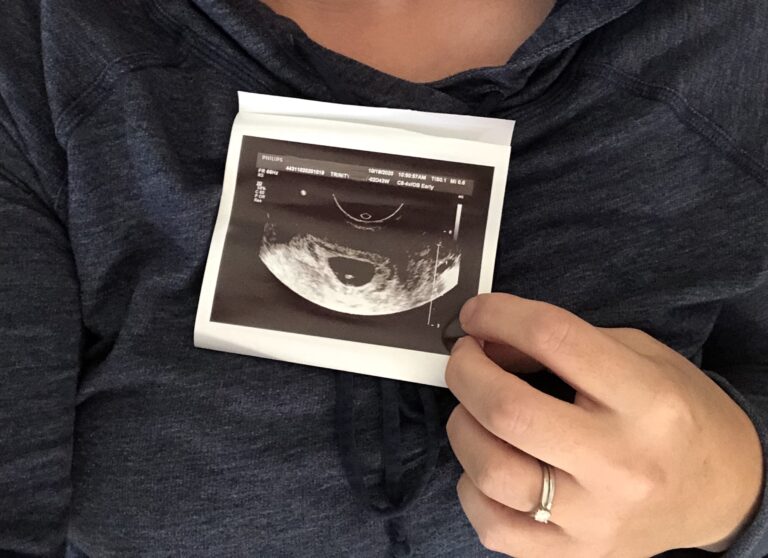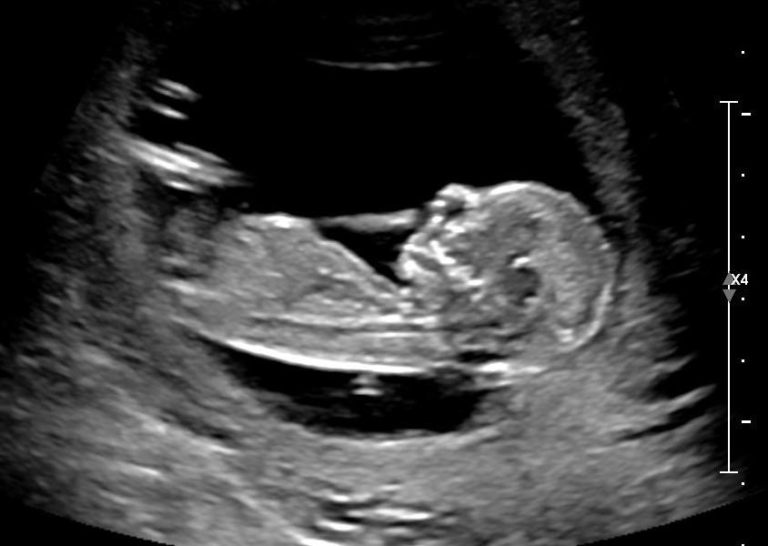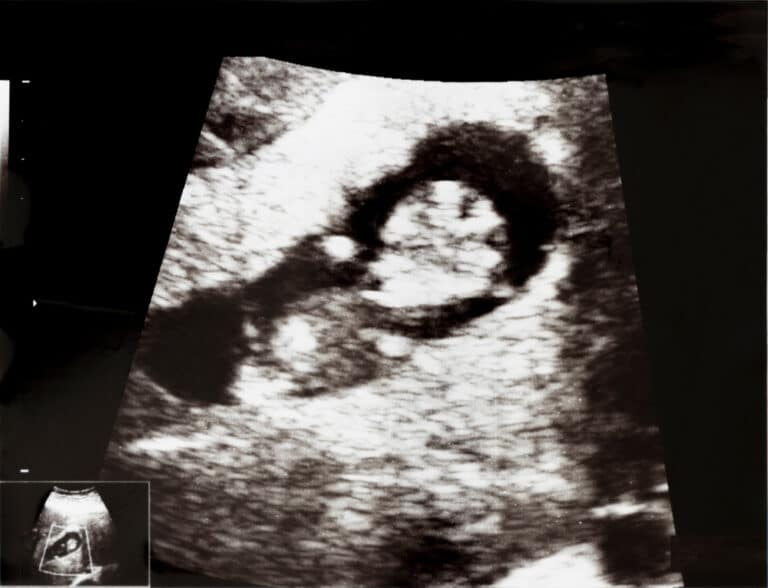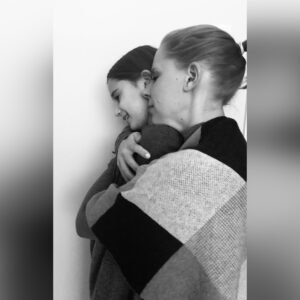I am sadly no stranger to pregnancy loss. Out of seven pregnancies, I have been blessed with one beautiful boy on earth, one miracle currently growing inside of me, and five precious angels in Heaven. As a result, I have plenty of experience in dealing with the aftermath of miscarriage.
During this period of intense grief and loss, I have had many well-meaning people tell me things they believed would make me feel better, but in reality, caused me pain. Additionally, I have had close friends pull away during this period of time, and later tell me it was because they simply didn’t know what to say as this type of loss is unfortunately still quite taboo. I have found that because people are so uncomfortable with pregnancy loss and it is not talked about as openly as it should be, they often say the wrong thing or nothing at all—both of which can be hurtful.
On several instances, I have been asked this question: what do I say to someone who has experienced a pregnancy loss? Based on my own experiences as well as conversations with other women, I have compiled the following list of what is helpful and hurtful after a miscarriage.
It is important to state that while this list contains many of the common helpful/hurtful actions and messages I have experienced post-miscarriage, it is by no means all-encompassing or one size fits all as each individual’s experience is unique and personal to them. With that in mind, it is my hope that the following can provide some direction for those who are unsure of what to do or say and make supporting a loved one after a pregnancy loss feel a bit less daunting and uncomfortable.
Things that hurt:
“At least” comments. At least it was early, at least you know you can get pregnant, at least you get to try again—that’s the fun part! Yes, these are all real things that were said to me after a miscarriage, and they all hurt. There is no “at least” statement that is going to be helpful in this situation because there is no positive perspective to take on losing my baby.
Toxic positivity (i.e. everything happens for a reason/it was meant to be, just stay positive, keep your chin up, etc.) I know this comes from a good place, but would you ever say this to someone who lost a loved one? It’s not likely. After pregnancy loss, I am mourning and I am going to be sad. It’s okay to be sad. I don’t need anyone to tell me to stay positive. I need them to validate and acknowledge my loss, pain, and grief. People naturally want to make things better, but the truth is that’s not always what people in pain need. What we really crave is loved ones to sit with us in our pain and validate it, no matter how uncomfortable that may feel.
Not asking about or avoiding talking about the loss. I appreciate that this typically comes from feeling uncomfortable and not knowing what to say, but it is incredibly hurtful. Post-loss is a time of deep mourning, and support is critical. Don’t disappear on your loved ones just because it makes you feel more comfortable. Be there.
RELATED: We Can’t Keep Miscarriage Quiet To Keep Other People Comfortable
Saying the baby is in a better place now. Despite the best of intentions, this immediately insinuates that I wasn’t good enough for my baby. Cue the onslaught of even more guilt and shame.
You want a healthy baby, don’t you? Yes, of course, I do. But I also wanted this baby. Statements such as these minimize the profound loss that the individual is experiencing.
Talking about other people’s pregnancies. I appreciate that this is an innocent one, but boy, is it painful. When a close friend would talk excitedly about someone else’s pregnancy directly to me shortly after I had lost a pregnancy, it would feel as if my loss and experience were being negated. Of course, another friend’s pregnancy is exciting and beautiful news, but it is pouring salt on an open wound to speak about it to someone so soon after they have lost their own. This is something to simply be mindful of.
Things that help:
Acknowledging the loss. Acknowledge the significant loss they have had. Experiencing pregnancy loss is experiencing a death and should be treated as such. Validate their grief, sadness, and pain.
Recognizing that you may not know what they are feeling or experiencing, but making it clear that you are there for them. If you haven’t experienced a pregnancy loss, it’s impossible to know what that person is going through mentally and physically. Acknowledge this. When people (with good intentions) attempt to empathize with something they don’t fully understand, it can be unintentionally hurtful. It meant a lot to me when people were transparent with the fact that they didn’t understand what I could possibly be feeling, but they were there to support me through it.
Asking, “What do you need?” This is an important question to ask because it will be different for each individual at different times in their healing process. Be prepared to give examples of things you can offer. For example, it was extremely helpful when a friend would offer to watch my son for me so I could attend the inevitable follow-up doctor’s appointments and procedures and not have to worry about finding childcare or to simply give me some alone time to grieve. Other examples include bringing a meal, picking up any needed groceries, and simply offering to come over and be physically present.
Sending a small gift or card. This doesn’t have to be an overly grand gesture, but it helps the individual who has experienced a loss to know they are being thought of. This is an especially great option if you happen to live far away from your loved one. It meant so much to me when I received a card or flowers letting me know a loved one was thinking of me during my time of loss. Some examples of meaningful gifts I received include a personalized care package stocked with a few of my favorite things, support books written by other women who had experienced pregnancy loss, spa-type products for relaxation, and jewelry commemorating the babies I had lost. I treasure each of these gifts to this day, and they helped me feel loved, supported, and acknowledged during my time of deep loss.
Showing up. Just be there. Send frequent texts to ask how your loved one is doing. Drop off their favorite coffee on the porch the next time you make a coffee run. Offer to take something off their plate without them having to ask. All of these small acts of kindness go a long way.
RELATED: 5 Things to Say to a Woman After a Miscarriage
This is not an exhaustive list by any means, but it is a place to start. Hopefully, these ideas can help provide a framework to better support a loved one after a miscarriage as well as provide some clarity regarding what can help and what may unintentionally cause pain during this time. It is critical to receive support during this period of profound grief and loss; however, sadly, women often lack this needed support due to feelings of discomfort and uncertainty surrounding the subject.
It is my hope that as miscarriage continues to become more openly discussed, people will begin to feel more comfortable supporting their loved ones and pregnancy loss won’t feel so isolating. Taking the time to read this demonstrates that you want to better understand and support a loved one after loss—and that in itself is so meaningful. Thank you for helping pave a pathway to a future where women no longer have to suffer in silence.

If you liked this, you'll love our book, SO GOD MADE A MOTHER available now!
Order NowCheck out our new Keepsake Companion Journal that pairs with our So God Made a Mother book!
Order Now

















